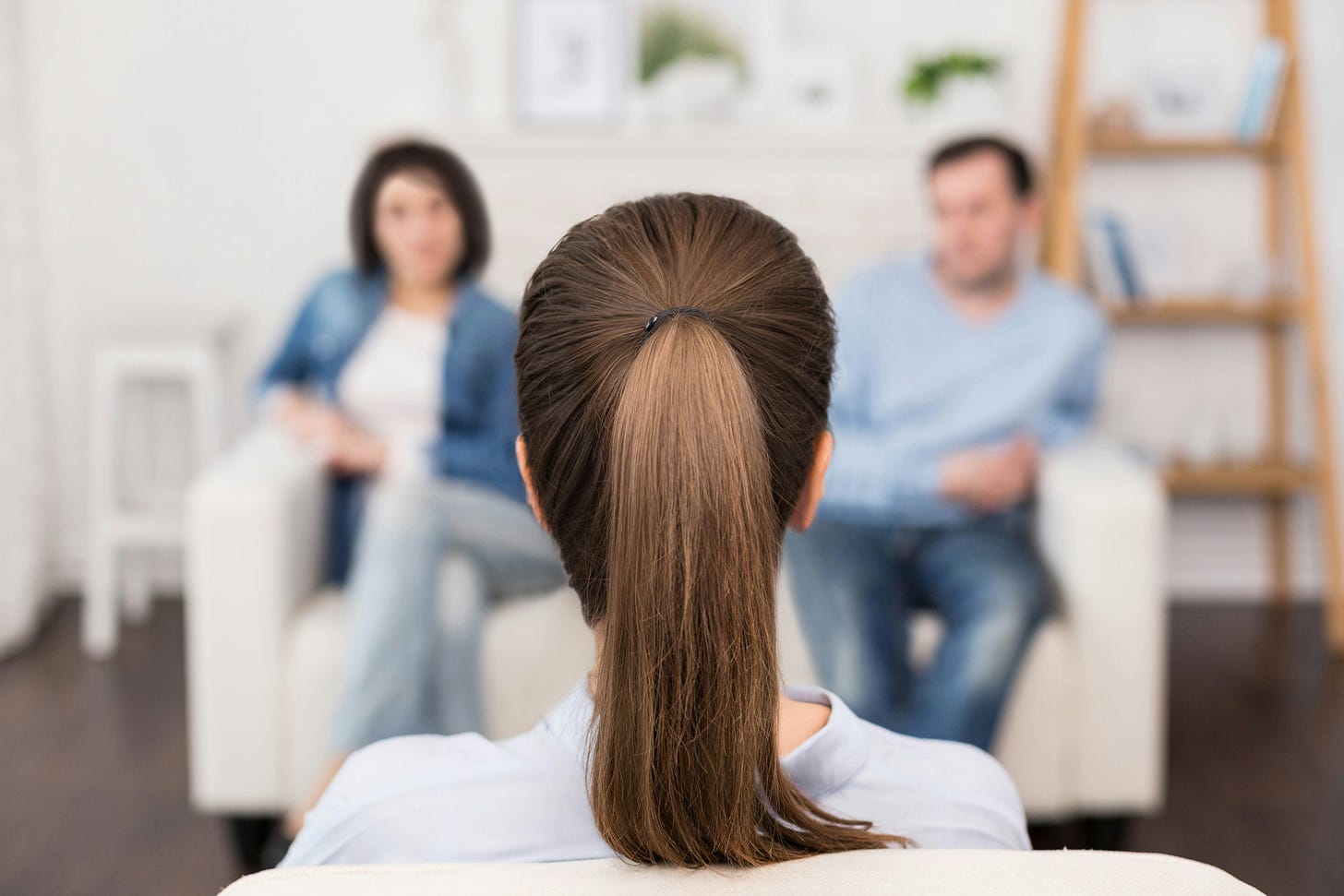Why couples counseling so often makes things worse
Why couples counseling rarely works for household inequality--and for most other significant problems
This is the first installment of a new series I am writing about therapy, inequality, and abuse in heterosexual relationships. This first piece is a high level introduction to the topic. In subsequent pieces I’ll dig a little more deeply. Be sure to leave a comment if there’s a specific question you have, or something you want me to cover!
A few months ago, I spent an evening at dinner arguing with a man about what it’s like to be a woman. He threw just about every gender stereotype he could at me, cited discredited research, accused me of being emotional when I cited more recent research, became belligerent and aggressive when I suggested men are not entitled to sex, and insisted that women just naturally enjoy doing laundry, no matter how much they protest to the contrary.
In other words, it was a typical conversation with a man in a patriarchy, except for one thing:
This man is a popular couples counselor who claims to be progressive.
Therapists are not immune to cultural conditioning, and when they buy into sexist bullshit—as most do, in a patriarchy—they can do untold harm.
I recently surveyed my readers about their experiences with couples counseling. The results were almost universally awful.
Dozens of women told stories of couples counselors blaming them for physical violence, telling them to just give an abusive man yet another chance.
One woman’s abusive partner kicked her child in the stomach. Her counselor told her she should stay with her husband because he was “good-looking” and wealthy.
Often, counseling itself transformed a bad marriage into an abusive one, as narcissistic men used what they learned in couples counseling to excuse their abuse or hone in on their partners’ vulnerabilities.
Over and over, women told me of going to couples counseling desperately hoping to reduce their husbands’ bad moods and get them to help out with household labor, only to be told that they weren’t allowed to ask for anything until they had sex with their husbands exactly as often as the men wanted.
Women often spent yeas in therapy, with nothing to show for it. Often, their husbands would punish them for things they said in therapy.
Therapists routinely endorsed discredited therapies, preached about their religion, or argued in favor of harmful gender roles.
In the rare instances where the therapist actually demanded anything of the man, he usually dropped out of therapy.
But mostly, therapy became a way for a man to pretend he was working on the marriage, while not doing anything that actually improved the woman’s life.
In theory, I love the idea of couples counseling, of seeking out a skilled and neutral mediator to help a couple improve their relationship. After all, if both parties are willing, almost any problem is solvable.
Therein lies the problem: in a patriarchal society, men are rarely willing to make actual, sustained, lasting changes for women—even women they claim to love. This makes couples therapy an exercise in futility for most couples. And it often buys the man years more of free labor from the woman.
So how can you tell if your relationship might benefit from couples therapy? And why does therapy make most bad relationships worse?



